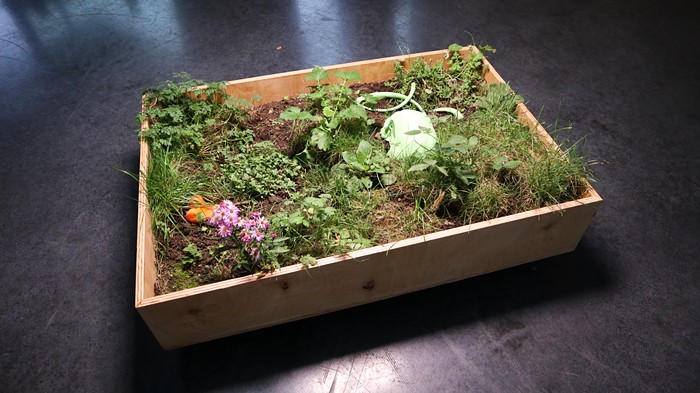Emerging artists are hot. Veteran artists are eminent. The ones in the middle, well, they dangle and suffer. The same goes for galleries.
Howard House, which opened 10 years ago in July, was once the pretty young thing of Seattle galleries. Billy Howard started it in his house, hence the name, and before long it became the hub for young Seattle artists, from Dan Webb, Mark Takamichi Miller, and Robert Yoder to Joseph Park, Leo Saul Berk, and Victoria Haven.
Fast-forward to this summer. Lawrimore Project, the ambitious next-generation gallery that's been giving Howard House a run for its money, finishes its first year. Howard's almost 5-month-old daughter gets her first tooth; his nearly 2-year-old son develops an insane enthusiasm for climbing. And Howard House loses five of its core Seattle artists: Webb, Haven, Alex Schweder, Park, and Berk.
They left dissatisfied with Howard's service, he said.
"I guess that I have inadequacies, but it's not because I don't try," Howard told me. "For some of these artists, their work is getting out there, and I don't know, I couldn't do anything more. If what I was doing isn't enough, then that's a high bar. I'm also an emotional person. There might be someone cooler out there."
The artists declined to comment.
But if the bar of artists' expectations has been raised, there can be little mystery as to why: Lawrimore Project and the start of Aqua Art Miami in 2005 (which Howard participates in). "I think Scott [Lawrimore] is really driving the dialogue in a very interesting way," Howard said. "It's great to be challenged. I mean, looking at what Scott's doing and a few other galleries, I think that we're a little more tame."
Howard admits that starting a family has demanded that he pay more attention to the bottom line. He also says he loves the same kind of work as ever: often, stuff that's hard to sell (he cites Sean Duffy's recent CD-player-mobile installation as an example). He says some of the artists left prematurely.
"There are changes coming to the gallery that I can't talk about," he said.
Whatever the situations between Howard and his artists, a renewed fighting spirit on his part is good news for Seattle art. These past two years haven't been easy, Howard says.
"It's like a long love story," he said. "There's a natural maturation, and definite points where you get burnt out. I just said to somebody recently, 'It could be the seven-year itch.' It's time to make adjustments, but by the same token, there's the core strength of the gallery."
As we were getting off the phone, his son, Ari, took a spill.
"See what happens? You fall," Howard told him, sanguinely. "But you're okay, aren't you?" ![]()



















